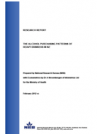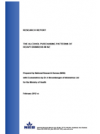In 2011 the Ministry of Health commissioned research to investigate the alcohol purchasing patterns of heavy drinkers. The research informed consideration of a minimum pricing regime for alcohol by testing in the New Zealand context. International evidence indicates that heavy drinkers are the dominant purchasers of the cheapest alcohol.
Purpose
One of the specific objectives of the National Drug Policy 2007-2012, is to reduce harm to individuals, families and communities from the risky consumption of alcohol.
In working towards this objective the Ministry researched the purchasing and consumption patterns of drinkers, with a particular focus on clarifying the purchasing behaviour of heavy drinkers relative to moderate and light drinkers. Specifically the Ministry sought to determine whether heavy drinkers purchased their alcohol at the cheapest prices, and whether this differentiated them strongly from more moderate drinkers.
Methodology
The research design considered best suited to studying this link, was a survey interview which intercepted liquor shoppers soon after purchase, when they still had their purchase invoice with them. Shoppers answered a brief questionnaire on their drinking frequency and intensity, and provided their invoice to the interviewer for attachment to their questionnaire answers. Participation was voluntary and anonymous. A total of 2,000 exit interviews were undertaken in equal proportion at supermarkets and liquor wholesalers.
Key Results
The research found that while heavy drinkers purchased alcohol in the cheapest range more frequently than moderate or light drinkers did, the proportion of purchasing by heavy drinkers within the cheapest range was around 27%. In other words, 73% of the alcohol purchased by the heaviest drinkers was found not to be purchased from within the cheapest price bracket.


